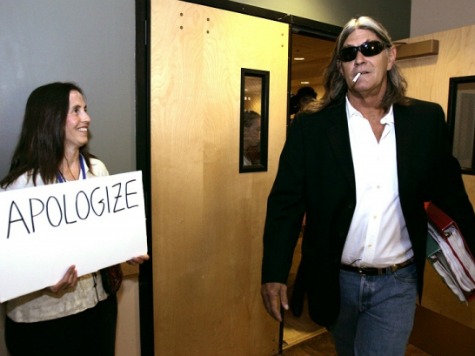
America may have heard the last of disgraced former University of Colorado Professor Ward Churchill, thanks to the U.S. Supreme Court. On Monday, SCOTUS declined to review the Colorado Supreme Court’s decision to dismiss Churchill’s lawsuit stemming from his 2007 firing.
Churchill gained nationwide infamy for writing an offensive essay in which he argued that U.S. policy provoked the September 11, 2001 terrorist attacks. He labeled the financial-service employees killed in the World Trade Center “little Eichmanns,” suggesting their work in America’s capitalist system was the moral equivalent of the Nazi Holocaust to annihilate the Jewish people. Churchill explicitly denied the victims were innocent and essentially argued that they deserved what happened to them, saying the attacks were a response “befitting” their profession.
Needless to say, many people were offended. In the ensuing national spotlight shined on Churchill, especially by Fox News’ Bill O’Reilly, questions emerged regarding Churchill, such as whether he falsely claimed to be part Native American. The University of Colorado began an investigation, during which it found no fewer than three instances of plagiarism, any one of which would be a terminal offense for a tenured professor.
Having found those violations, the school did not continue investigating the other claims against him. Instead, they fired him in July 2007, noting that he was defiant to the end, refusing to express regret or apologize.
Churchill took his brazenness to a new level, suing the university and claiming his First Amendment rights were violated. The lawsuit went all the way to the Colorado Supreme Court, with the courts consistently siding with the University of Colorado. On Monday, the U.S. Supreme Court rejected Churchill’s final appeal, putting the matter to rest.

COMMENTS
Please let us know if you're having issues with commenting.